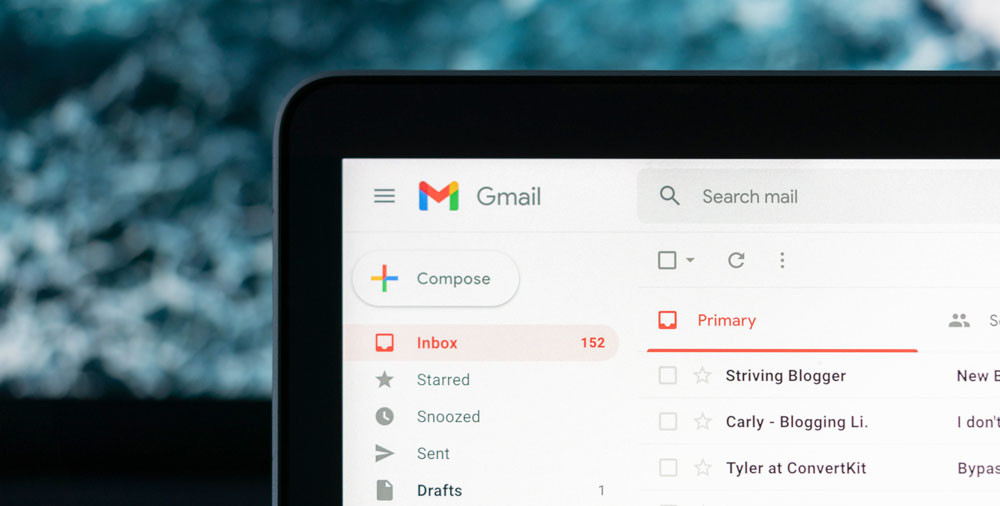15 Effective Email Subject Lines for Inviting Speakers for an Event
Inviting a guest speaker to your event can be a great way to add value and insight to your event. Whether you are organizing a conference, workshop, or seminar, having a speaker who can share their expertise and experiences can help attract attendees and make your event more memorable.
However, getting the right speaker to agree to speak at your event can be challenging. This blog will provide insights on how to invite guest speakers and provide examples of subject lines for inviting speakers.
Tips for Inviting Guest Speakers
Committee member for the Regional Chapter of the Association for Talent Development, keynote speaker, and author, Mark Grimm gives his advice on inviting special guest speakers to events. Joining us on The EventBuzz Podcast, Grimms share how event planners can get a good speaker at their events.
"On the invite, make it clear what's in it for them. Now, it may be a good size fee, but a lot of them are low fees, it's really more about the opportunity, from a speaker standpoint, to get in front of people that you can do business with." - Mark Grimms. Episode 45.
More tips on inviting guest speakers to your events include the following.
-
Determine the purpose of your event: Before reaching out to potential guest speakers, it is essential to determine the purpose of your event. What is the theme or objective of your event? What type of speaker would align with your goals and resonate with your audience? Understanding the purpose of your event will help you identify potential speakers that would add value and attract attendees.
-
Identify potential speakers: Once you have a clear understanding of the purpose of your event, the next step is to identify potential guest speakers. Consider individuals who have expertise in the subject matter, who have experience speaking at similar events, and who have a reputation for delivering engaging presentations. You can search online for speakers in your industry or ask for recommendations from colleagues or industry associations.
-
Research your potential speakers: Once you have a list of potential speakers, it's essential to research their background, expertise, and reputation. Check their social media profiles, LinkedIn pages, and online publications to get a sense of their interests and expertise. You can also review their past speaking engagements, testimonials, and feedback from attendees to evaluate their presentation style and delivery.
-
Reach out to potential speakers: After researching potential speakers, it's time to reach out to them. The initial contact should be concise and informative, providing details about your event and why you think it would be an excellent fit. It's essential to be clear about what you're asking for, whether it's a keynote speech, a panel discussion, or a workshop. Include the date, time, and location of the event, as well as any benefits or perks you're offering, such as travel expenses or an honorarium.
-
Follow-up: Once you've sent your initial email or made your initial phone call, it's important to follow up with potential speakers. Some speakers may not respond immediately, and it may take several attempts to get their attention. Be polite, but persistent, and offer to provide additional information or answer any questions they may have.
Subject Line for Inviting Speakers
The subject line of your email can make a significant difference in whether a potential speaker opens and reads your email. It should be clear, concise, and informative, conveying the purpose and benefits of your event.
Here are some examples of effective subject lines for inviting speakers to an event:
- [Event name]: Seeking a keynote speaker
- [Event name]: Looking for a subject matter expert
- [Event name]: Calling all industry leaders
- Invitation to be a panelist at [event name]
- [Event name]: Seeking a thought leader
- Invitation to speak on [subject matter] at [event name]
- [Event name]: Opportunity to share your expertise
- [Event name]: Seeking a dynamic speaker
- invitation to speak at [Event Name]: Join the conversation on [Topic] with [Your Organization]
- Join our panel of experts at [Event Name]: Share your insights on [Topic] with [Your Organization]
- Request for Keynote Speaker: Inspire [Audience] at [Event Name] with your expertise on [Topic]
- invitation to speak at [Event Name]: Help us explore [Topic] with [Your Organization]
- Speaker Inquiry: Join our lineup for [Event Name] and share your knowledge on [Topic]
-
Calling all thought leaders: We want you to speak at [Event Name] about [Topic] with [Your Organization]
- Join our event as a speaker: [Event Name], [Event Date], [Event Location]
Other Ideas for Contacting Guest Speakers
Aside from sending an email, there are other ways to contact potential guest speakers. Here are some other ideas to consider:
-
LinkedIn: LinkedIn is a great platform to search for potential speakers and reach out to them directly. You can search for individuals who have spoken at similar events or who have expertise in your industry.
-
Social Media: Social media platforms such as Twitter or Instagram can be used to reach out to potential guest speakers. You can direct message them and ask if they would be interested in speaking at your event.
-
Referrals: Reach out to colleagues, industry associations, or other event organizers for referrals. They may know of potential speakers who would be a good fit for your event.
-
Phone Call: If you have the contact information of a potential speaker, consider calling them directly. This approach can be more personal and allows you to provide more information about your event.
- Attend other events: Attend other industry events and conferences to network with potential speakers. This can be an opportunity to meet and speak with them directly and discuss potential opportunities
Conclusion
Inviting guest speakers to your event can be an effective way to add value and attract attendees. The process of inviting speakers involves identifying potential speakers, researching their backgrounds and expertise, and reaching out to them with a clear and informative email or phone call. The subject line of your email is critical and should convey the purpose and benefits of your event. Other ideas for contacting guest speakers include using LinkedIn, social media, referrals, phone calls, and attending other events. By following these tips and subject lines, you can increase the chances of getting the right guest speaker for your event.






